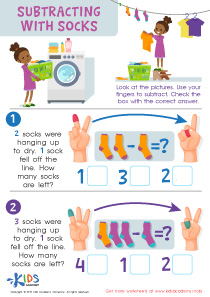Length and Mass Word Problems Worksheets for Ages 3-8
5 filtered results
-
From - To
Explore our comprehensive Length and Mass Word Problems Worksheets designed for ages 3-8! Tailored to nurture early math skills, these worksheets offer diverse and engaging activities that teach kids to measure, compare, and calculate length and mass in fun, real-life contexts. Each worksheet provides step-by-step word problems with vibrant images and relatable scenarios that stimulate young minds. Perfect for home or classroom use, these resources encourage critical thinking and practical math application. Enhance your child's learning journey and boost their confidence in math with our expertly crafted worksheets. Join us at Kids Academy for a fun-filled educational experience!
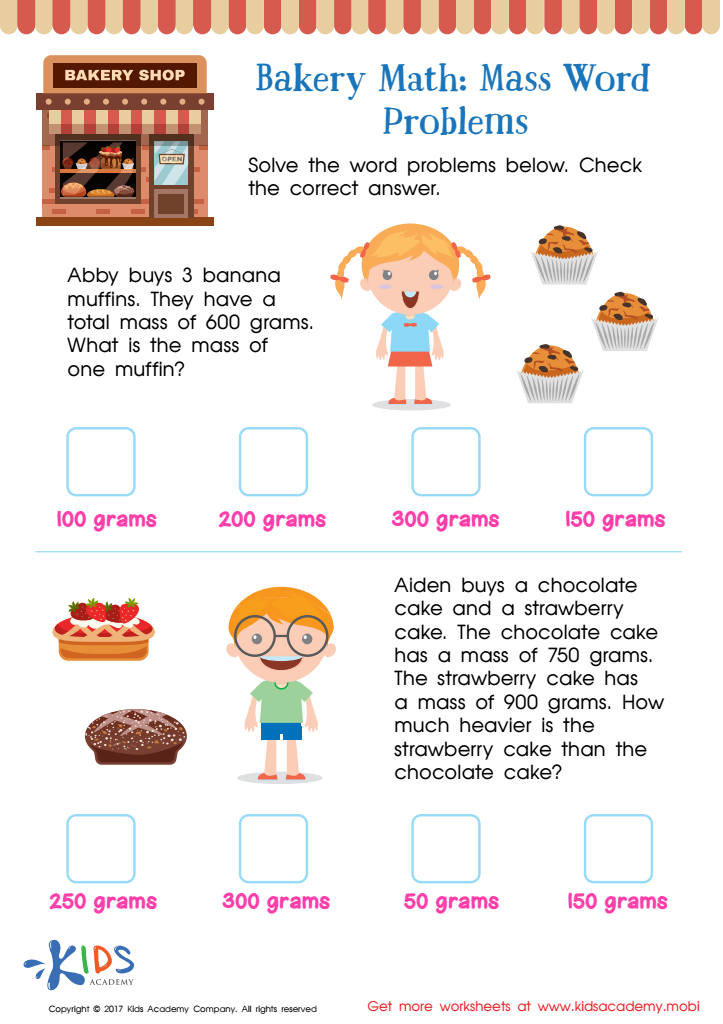

Mass Word Problems Worksheet
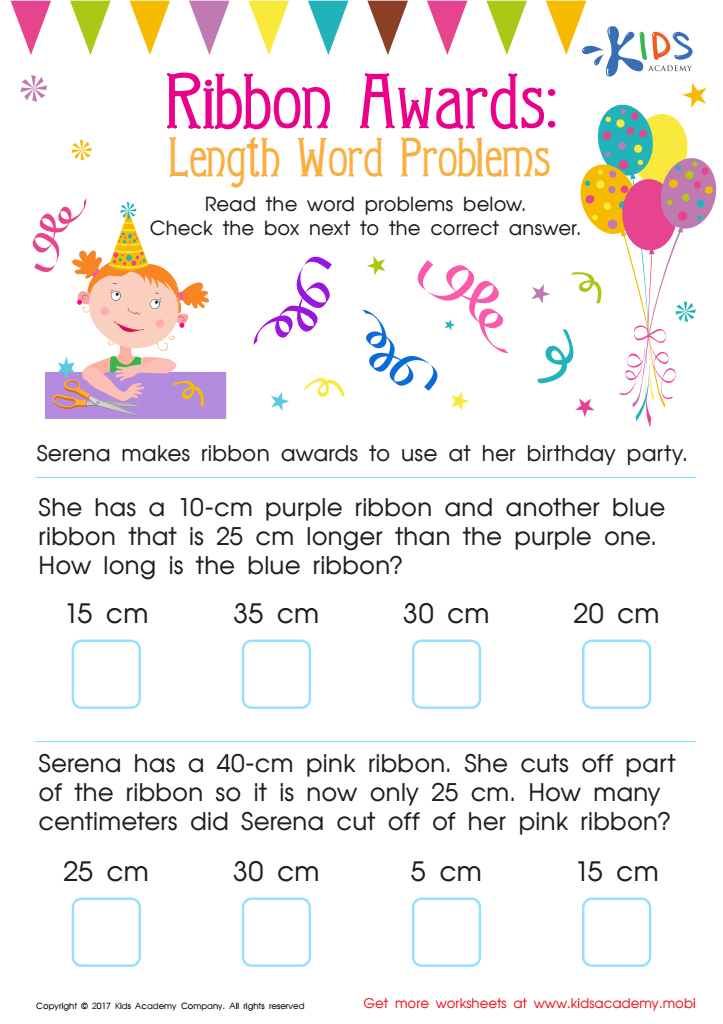

Length Word Problems Worksheet
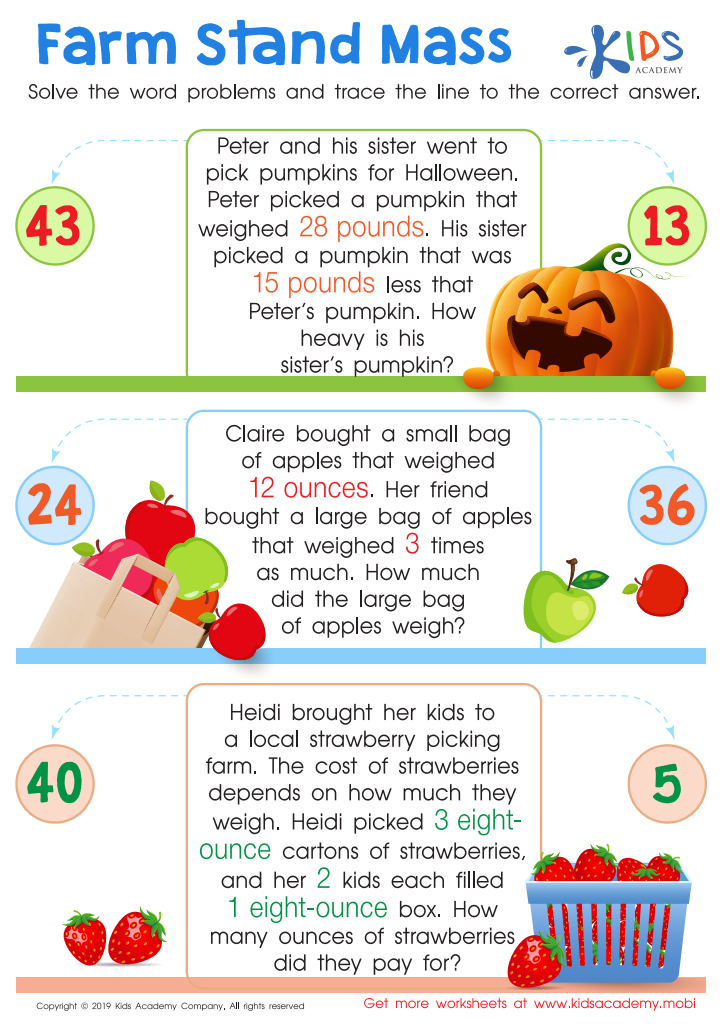

Farm Stand Mass Worksheet
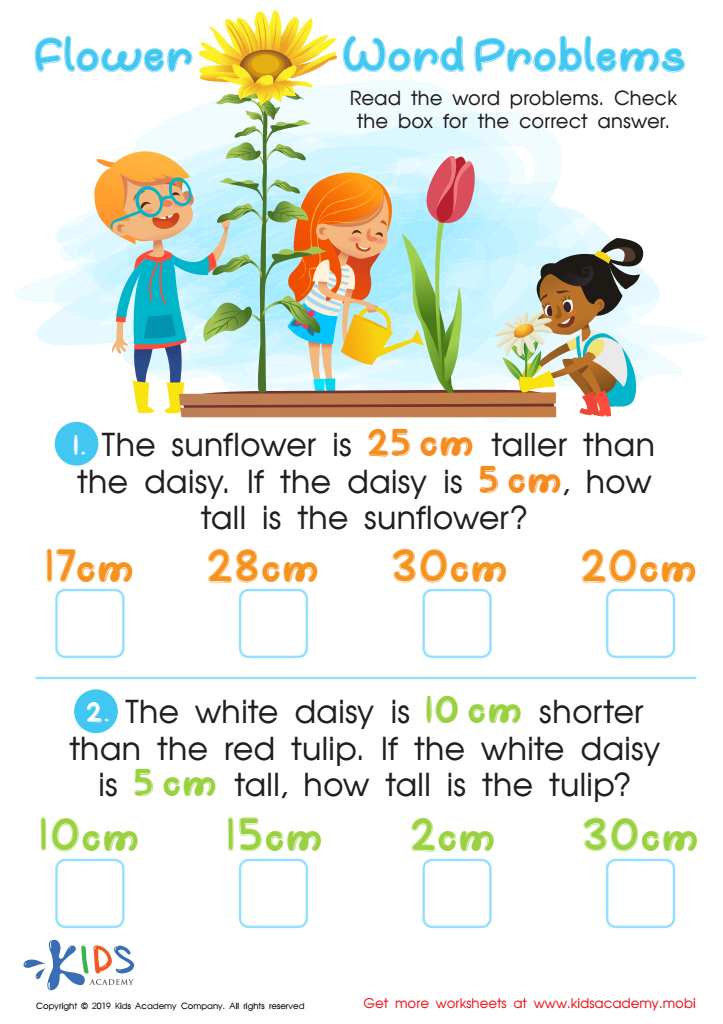

Flower Word Problems Worksheet
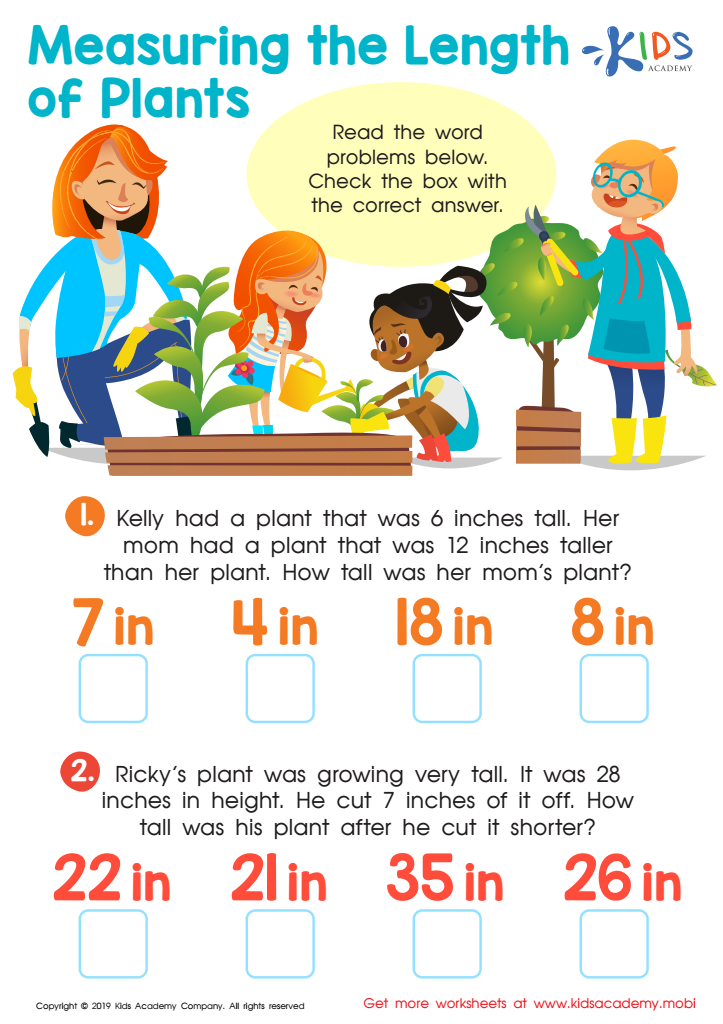

Measuring the Length of Plants Worksheet
Parents and teachers should place a strong emphasis on introducing length and mass word problems to children aged 3-8, as they play a crucial role in building foundational skills in early education. At this critical developmental stage, young learners are rapidly acquiring essential cognitive abilities and developing their understanding of the world. Length and mass word problems significantly contribute to these growth areas by merging mathematical concepts with practical, real-life applications.
First, these problems enhance cognitive skills such as critical thinking, problem-solving, and logical reasoning. They require children to read the problem, understand it, and translate the information into mathematical operations, promoting analytical thinking and comprehension. Second, solving word problems helps young learners develop a conceptual understanding of measurement. They learn to quantify objects, compare lengths and weights, and grasp the meaning of units and measurements, which are fundamental concepts in both daily life and advanced mathematics.
Additionally, length and mass word problems encourage children to communicate and articulate their thought processes, fostering verbal and written communication skills. This preparation lays a solid foundation for more advanced academic skills in later years. Importantly, the ability to solve practical measurement problems also builds confidence and promotes a positive attitude towards mathematics, setting the stage for continued success in STEM fields.
 Assign to My Students
Assign to My Students



